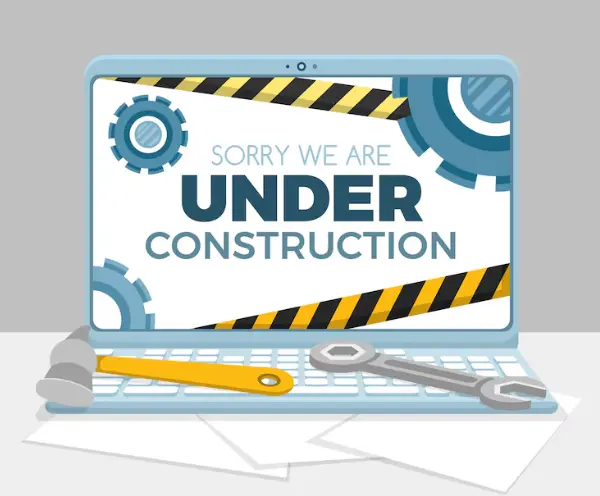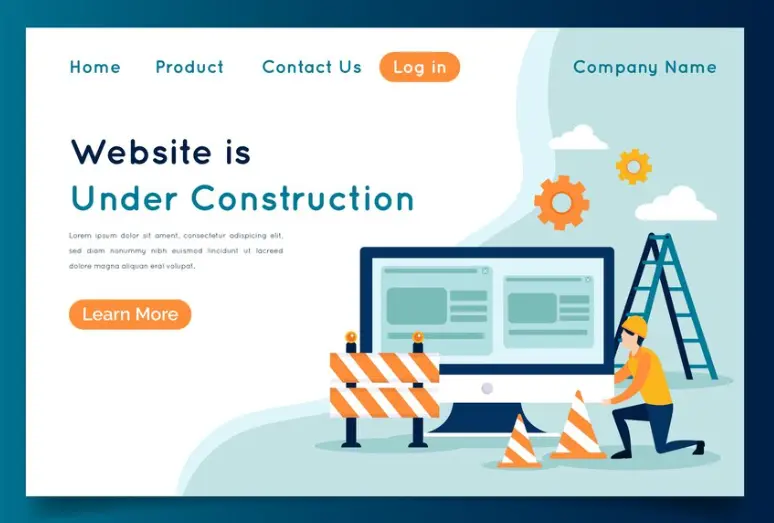Website maintenance is crucial for the smooth operation of any e-commerce site, especially in the UK, where online shopping continues to dominate consumer habits. Yet many businesses still ask: What is website maintenance? and Why do I need website maintenance?
In this article, we’ll explore the answers, show you how to maintain a website, and explain why ongoing maintenance is key to SEO rankings, security, and consistent growth.
What Is Website Maintenance?
Website maintenance involves the regular process of checking, updating, and optimising your website to ensure it runs smoothly, securely, and up to date.
It typically includes:
- Technical tasks like software updates, bug fixes, and backups
- Content updates such as new product listings or blog articles
- Performance improvements including site speed and mobile usability checks
Why Website Maintenance Is Important

1. Improves SEO Rankings
Search engines favour websites that are fast, error-free, mobile-friendly, and regularly updated. Website maintenance ensures:
- Broken links are fixed
- Pages load quickly
- Meta tags and structured data are optimised
- Your sitemap stays clean and updated
These improvements directly boost your visibility in search results.
2. Boosts User Experience
A slow-loading, outdated, or buggy website drives users away. Regular maintenance enhances:
- Navigation and usability
- Mobile responsiveness
- On-site search functionality
- Accessibility for all users
A better user experience means more sales, repeat customers, and lower bounce rates.
3. Prevents Website Downtime
Every minute your site is down, you’re losing potential revenue. Maintenance minimises risks by:
- Identifying and resolving bugs early
- Monitoring uptime
- Ensuring hosting and SSL certificates are current
4. Enhances Website Security
E-commerce websites are prime targets for cyberattacks. Maintenance helps you:
- Install the latest security patches
- Conduct vulnerability scans
- Back up your website regularly
- Set up firewalls and enable two-factor authentication
What Does Website Maintenance Include?
A comprehensive maintenance plan should cover both front-end and back-end tasks. Here’s what’s typically included in website maintenance services:
- CMS, plugin, and theme updates
- Regular backups
- Malware scans and security audits
- Fixing broken links
- Updating outdated content
- Site speed and performance testing
- UX/UI improvements
- Accessibility checks
- Error and 404 resolution
- Mobile responsiveness updates
For WordPress users, check out how to put a website in maintenance mode in WordPress or how long website maintenance takes.
How to Maintain a Website: Best Practices for UK E-commerce Businesses

Maintaining a website is an ongoing task—but with a structured approach, it becomes manageable and impactful. Here’s how:
1. Keep Software Updated
Always use the latest versions of your CMS, plugins, and themes to patch vulnerabilities.
2. Run Regular Backups
Use tools like UpdraftPlus or BackupBuddy to automate regular backups. Store them offsite for security.
3. Monitor Website Performance
Use Google Analytics, PageSpeed Insights, and Search Console to monitor:
- Load times
- Bounce rates
- Mobile usability
- Core Web Vitals
4. Fix Broken Links and Errors
Use tools like Screaming Frog or Ahrefs to scan for and repair 404 errors, redirects, and broken internal/external links.
5. Strengthen Security
Ensure SSL is active, install a Web Application Firewall (WAF), and run monthly vulnerability scans.
6. Audit Content Regularly
Review and refresh product descriptions, blog posts, and visuals to stay relevant and aligned with customer expectations.
Local Insights: Why Website Maintenance Is Especially Crucial in the UK Market
With the UK e-commerce sector expected to exceed £150 billion by 2025, the stakes are higher than ever. Customer expectations around site speed, mobile responsiveness, and data security have intensified.
UK-specific regulations like GDPR make regular compliance checks even more critical. Your site must always:
- Display clear cookie and privacy notices
- Handle customer data securely
- Be accessible to a wide range of users, including those with disabilities
Expert Insight:
“From working with over 100 e-commerce clients in the UK, we’ve observed that businesses that invest in regular website maintenance experience 30% less downtime and see a 20% increase in their conversion rates.”
“After analysing case studies from top-ranking UK e-commerce sites, we noticed that those with proactive website maintenance services enjoyed higher customer trust and greater retention rates.”
What Happens If You Neglect Website Maintenance?
- Loss of traffic due to poor SEO signals
- Security breaches leading to legal trouble or lost customer trust
- Broken checkout processes resulting in abandoned carts
- Slow speeds that frustrate users and drive them to competitors
Your website is a digital storefront—neglecting it is like letting your physical store gather dust and broken shelves.
Website Maintenance Services in the UK: What to Look For
When choosing a service provider, ensure they offer:
- Customised plans based on your e-commerce platform (e.g., Shopify, WooCommerce, Magento)
- Transparent reporting of updates, changes, and results
- Local support for better timezone alignment and regulatory understanding
Explore our full guide: What is included in website maintenance?
Final Thoughts: Invest in Ongoing Website Success
Website maintenance is not a one-off task—it’s a crucial, continuous investment in your e-commerce success. From enhancing performance to securing customer data, it plays a vital role in your business’s growth and reputation.
Ready to protect and optimise your e-commerce site?
Contact us today for a free consultation.

